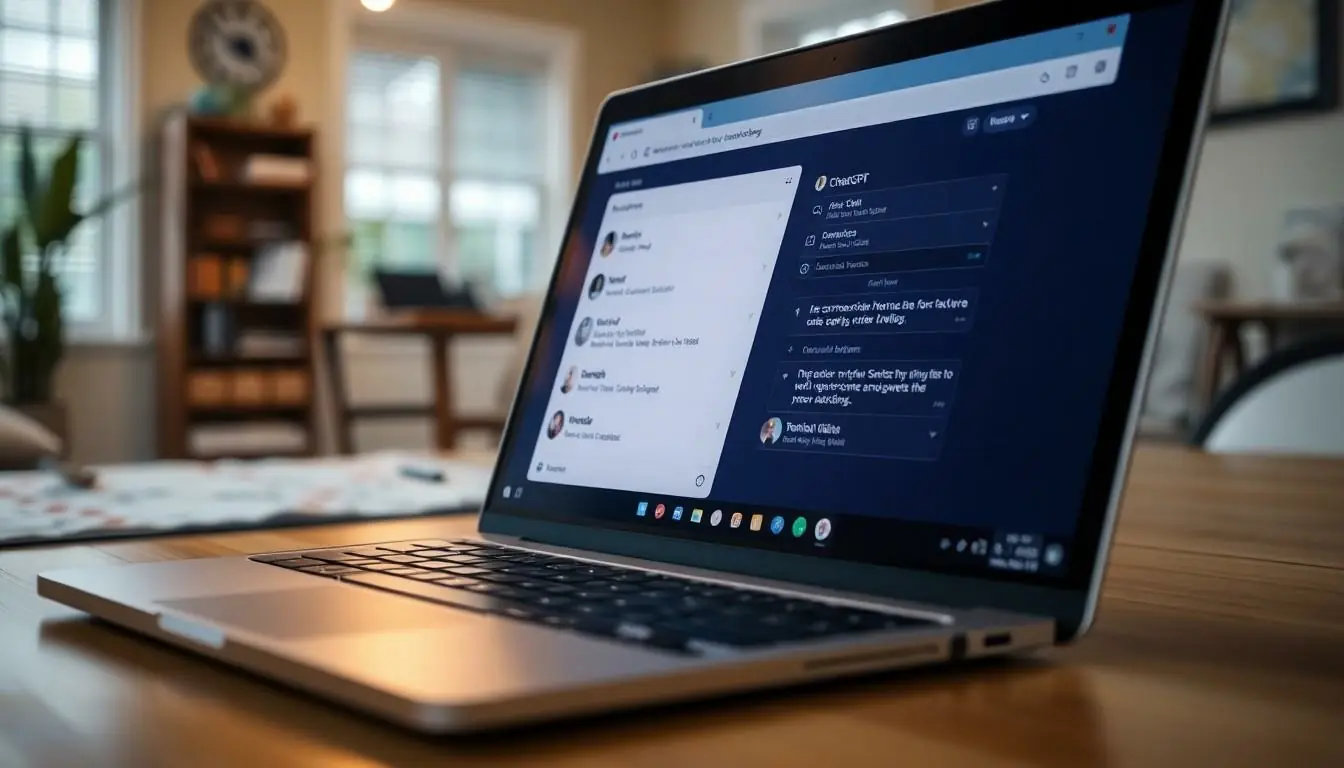Table of Contents
ToggleIn a world where privacy feels like a mythical creature—like Bigfoot or a unicorn—many users wonder if their conversations with ChatGPT are being eavesdropped on. Can anyone see what you ask this digital genie? It’s a question that tickles the curiosity of the cautious and the conspiracy theorists alike.
Understanding ChatGPT Privacy
Concerns about privacy in conversations with ChatGPT warrant attention. Users might wonder how their interactions with the AI are managed and whether their data is secure.
Overview of Data Usage
OpenAI collects and utilizes data from user interactions to enhance system performance. This information assists in improving responses and refining overall functionality. Users’ inputs contribute to model training, but individual questions aren’t stored in identifiable formats. Aggregated data is analyzed to identify patterns without linking back to specific users. Transparency around data policies helps users understand this usage.
User Anonymity and Security
User anonymity remains a priority in ChatGPT interactions. Conversations aren’t tied to personal identities, ensuring that privacy is maintained. Secure systems and encryption protect data from unauthorized access. OpenAI follows stringent protocols to safeguard user information during storage and transmission. Users can engage without fear of exposure, bolstering confidence in the platform’s security measures.
Visibility of Queries

User interactions with ChatGPT raise important questions about privacy and data management. Understanding the visibility of queries helps clarify concerns surrounding this technology.
Are Your Questions Public?
Questions asked within ChatGPT are not public. OpenAI safeguards user privacy by ensuring that individual interactions do not surface publicly or become accessible to others. Conversations remain confidential and are not generally shared or displayed in public forums. OpenAI collects data for system improvement through aggregated insights, without revealing specific questions linked to users. Therefore, individuals can engage with the AI without worrying their queries can be seen by others.
Who Can Access Your Data?
Access to user data is highly restricted. OpenAI maintains strict data management policies, allowing only authorized personnel to interact with anonymized data for research and development purposes. While data is collected to enhance AI performance, it is organized in a way that does not identify individual users. Users can feel secure knowing their interactions remain private and protected, with robust systems in place to ensure data security. Thus, the design prioritizes user anonymity throughout the process.
Confidentiality Measures
OpenAI prioritizes user privacy and confidentiality through its data management practices. Understanding these measures reassures users about the safety of their interactions.
OpenAI’s Data Policies
OpenAI’s data policies emphasize user anonymity. Interactions with ChatGPT are not linked to identifiable information, reinforcing privacy. Data collection occurs only to enhance system performance while maintaining individual confidentiality. Authorized personnel access anonymized data strictly for research and development. Transparency in these policies builds trust, as users know their queries remain private.
User Control Over Information
Users maintain significant control over their information related to ChatGPT conversations. Options exist to delete account history, giving individuals the ability to remove their data. Additionally, users can choose what to share, ensuring their engagement with the AI aligns with personal comfort levels. This control empowers users to manage their privacy actively, bolstering overall confidence in using the platform.
Implications for Users
Understanding privacy within ChatGPT interactions remains essential. Users can confidently navigate their conversations, knowing that inquiries remain confidential.
Trust and Transparency
OpenAI promotes an atmosphere of trust through its transparency efforts. Clear guidelines on data collection reassure users about their privacy. Users learn that interactions aren’t stored in identifiable formats and that anonymity remains a priority. Commitment to user privacy fosters confidence in platform usage. Through robust security measures, OpenAI restricts access to data, allowing only authorized personnel to engage with anonymized information. This systematic approach creates an environment where users can feel secure about their questions and concerns.
Risks of Sharing Sensitive Information
Sharing sensitive information during interactions carries potential risks. Conversations, though private, could lead to unintended exposure if users disclose personal or confidential data. It’s prudent to limit the amount of sensitive details shared with the AI. In cases where users share information that could identify them, even anonymized systems might face challenges in ensuring total privacy. Users must prioritize their safety by maintaining discretion during discussions. By understanding these risks, individuals can better safeguard their personal privacy in digital spaces.
Conclusion
Understanding privacy in interactions with ChatGPT is crucial for users. They can engage confidently knowing their queries are confidential and not accessible to others. OpenAI prioritizes user anonymity and ensures that conversations remain private through stringent security measures.
While users have control over their information and can manage their data actively, it’s important to exercise caution when sharing sensitive details. By maintaining discretion, individuals can further protect their privacy in digital environments. OpenAI’s commitment to transparency and data security empowers users to navigate their interactions with peace of mind.



